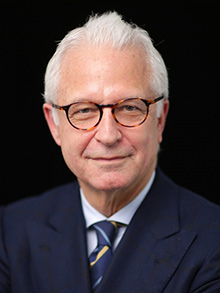
The human brain is not wired for this. Our twenty-first century lives had already taken us far away from what our brains evolved to do – but now, in the middle of a pandemic, we are in over our heads.
Your brain works best when it does one thing at a time, with all your attention focused on the task at hand, without disruption. Can you even remember the last time you accomplished anything that way? We have become accustomed to multi-tasking, and we fool ourselves into thinking that it makes us more efficient. But if we answer an email while we’re talking on the phone as we’re walking the dog… we’re not doing any of those things well, and we’re working against evolution as well.
Just as the physical brain is divided into lobes, the cognitive brain is divided into functional domains, including language, memory, attention, executive function, and visuo-spatial. Overlaying all of those is processing speed, meaning just how fast we can synthesize everything that we see, hear, think, imagine, and remember. When you multi-task, or try to, your efforts challenge your attentional domain. That domain is perfectly suited for keeping you focused on one thing, but with every chime of a text or news alert from CNN, you undermine what your brain is trying to do.
One interesting result is that we develop what we think are memory problems – we start forgetting where we left our keys, where we parked the car, and wait, who was it that I was supposed to call back? People get frightened, and they make appointments with neurologists because they are afraid they are developing dementia.
In many cases, they have no memory issues at all, but they do have attentional issues. If you are not paying attention to what you are doing, you can’t actually form a memory of it. It’s not that you forget where you parked your car, it’s that you were thinking of something else at the time, so you never formed a memory in the first place. When we teach a patient to slow down, take things one at a time, and be more mindful of their actions, they realize their memory is fine.
Shortly before the pandemic revealed its enormity to us, I spoke with Dr. Marvin Chun, a professor of psychology and neuroscience at Yale University, for a podcast segment about multi-tasking and performance. Our focus was on athletes, musicians, and others who need complete focus, and how multi-tasking negatively affects their performance. Dr. Chun talked about what it means to be "in the zone" – that state of intense, focused attention that brings out the very best in a performer – and why athletes, musicians, and others strive to get there.
Our conversation turned out to be prescient, and I thought of it this week in the context of the torrent of information coming at us all day long right now. Our brains are divided as never before, and now we are expected to go about our days getting our work done while being barraged with new information and statistics and fear.
Take a few moments to listen to this week’s podcast – and heed Dr. Chun’s advice: Do one thing at a time and try to tune out distractions; get plenty of sleep to restore your brain; and manage your stress. And while I would never advise anyone to be uninformed, I do suggest you turn off the news once in a while and give yourself a break from it.
I know how hard all of those things are to do these days, but I promise you will be healthier for trying. Be safe, and stay healthy.
You can find all my previous podcast episodes on DrPhilStieg.com or wherever you listen to podcasts. Be sure to subscribe so you never miss an episode.